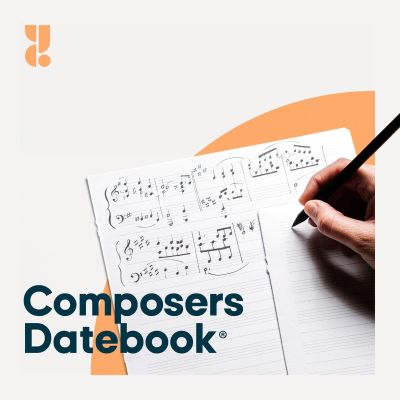Composers Datebook™ is a daily two-minute program designed to inform, engage, and entertain listeners with timely information about composers of the past and present. Each program notes significant or intriguing musical events involving composers of the past and present, with appropriate and accessible music related to each.
Variations on a tune by Handel
On this date in 1747, a crowd of London concert-goers gathered in response to a newspaper announcement, which read, "At the Theatre-Royal in Covent-Garden tomorrow will be perform'd a new oratorio, call'd 'Judas Maccabaeus'… no person to be admitted without tickets… at half a guinea each." The composer of this new Biblical oratorio was George Frideric Handel, and 'Judas Maccabaeus' would become one of his most popular works. One choral number, entitled "See, the Conqu'ring Hero Comes," celebrating a military victory of its title character, proved a smash hit that generations of audience members would whistle or hum on their way home. Oddly enough, the audience at the 1747 premiere wouldn't have heard that tune, since Handel only added it to his score some years later, after the chorus was first used in another Handel oratorio altogether. Fifty years after the oratorio's premiere, Ludwig van Beethoven would composed twelve variations on "See, the Conqu'ring Hero Comes" for piano and cello, and 90 years after Beethoven, a Swiss writer made the tune into an Easter hymn that some of us know as "Thine Be the Glory." The tune also appears in a much rowdier context during the annual Last Night of the Proms concert in London, since it crops up in Sir Henry Wood's "Fantasia on British Sea Songs," an almost obligatory party piece played on that occasion.
